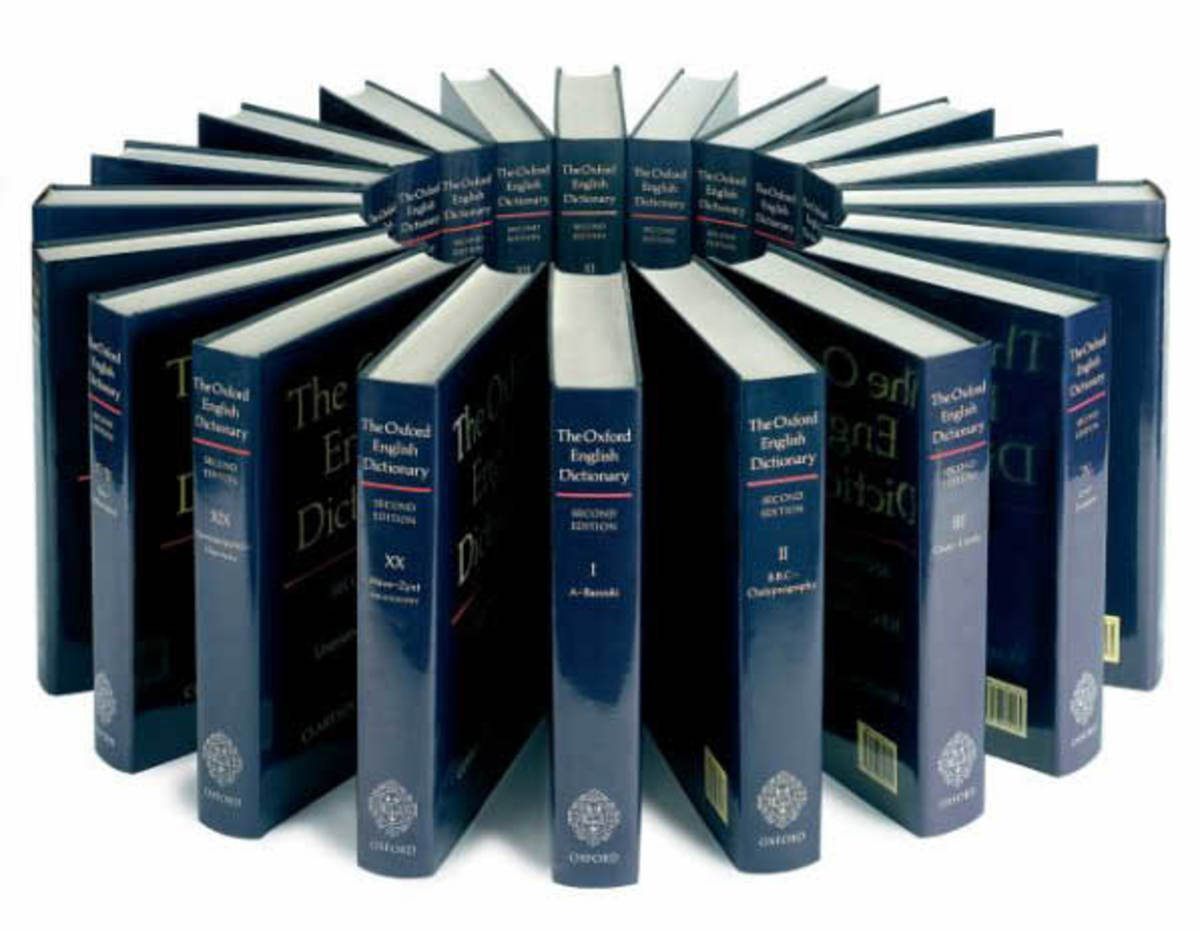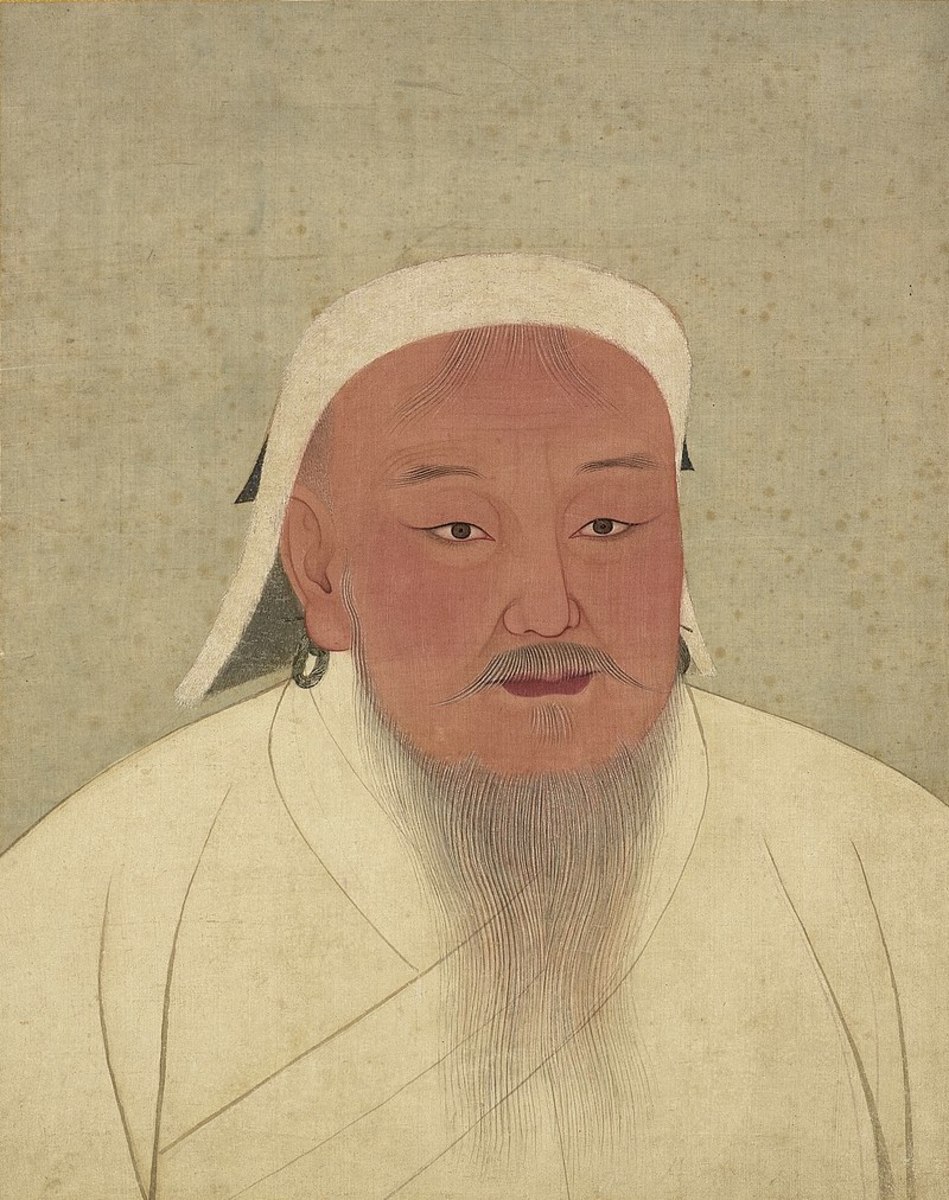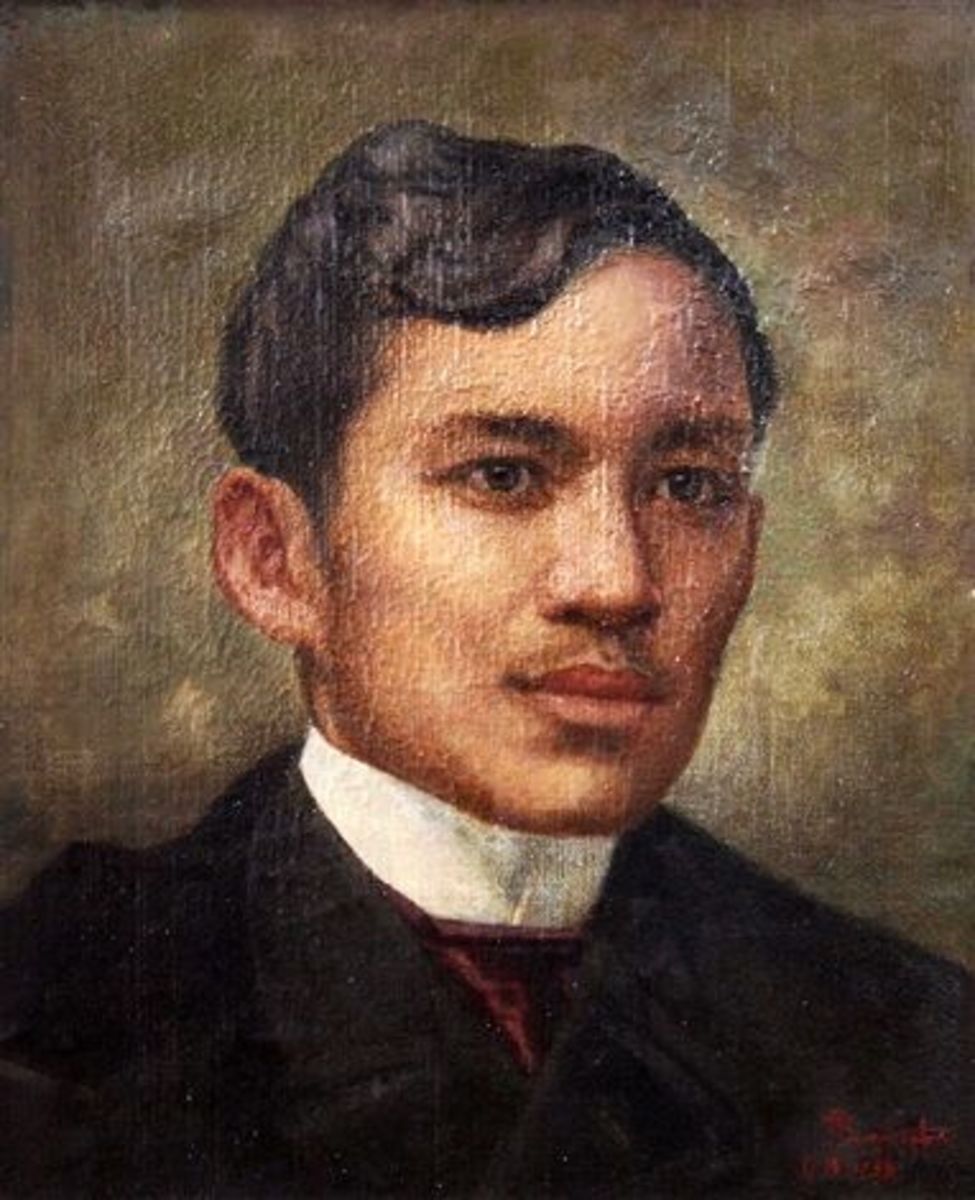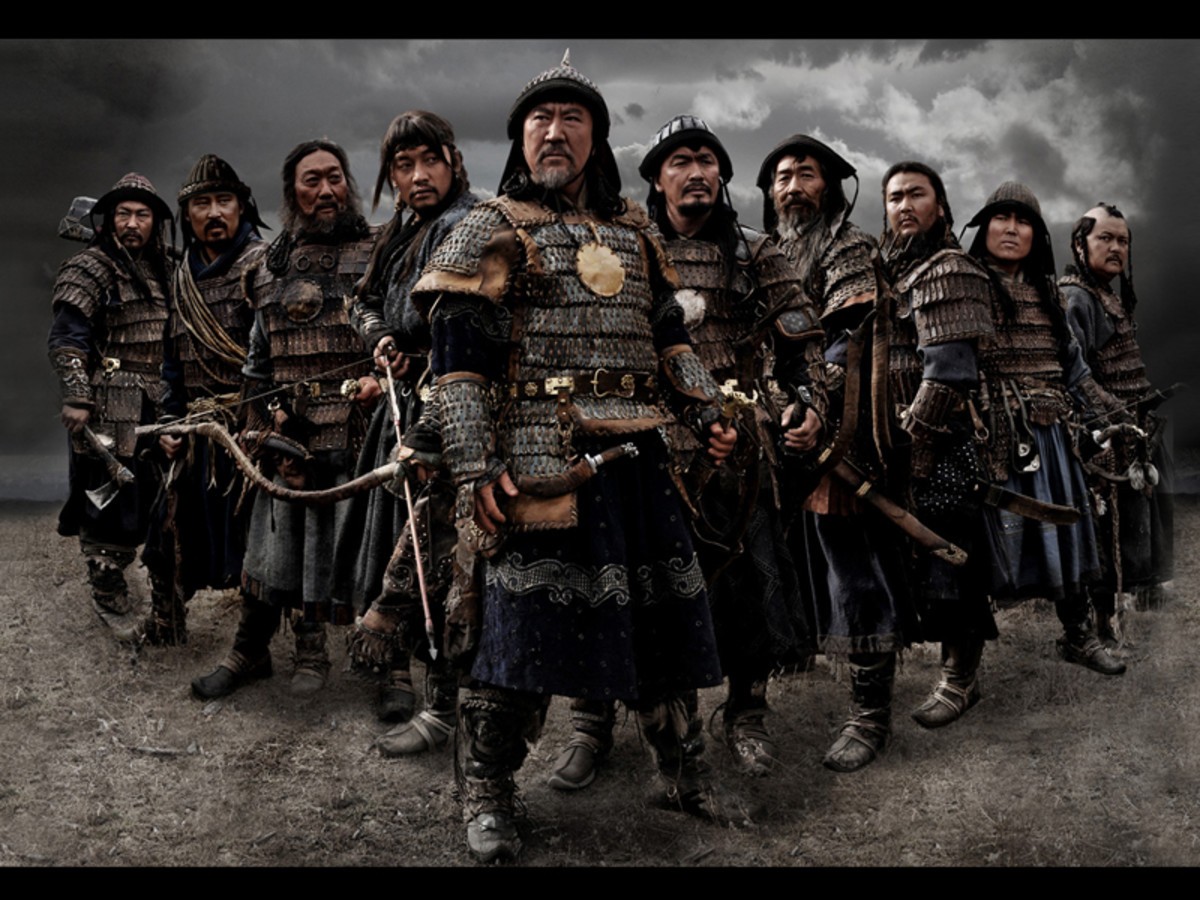Of Malaysian Palaces, Standing Englishmen and Muslim Countries
The misrepresented "-stans"
The Western media has long been abuzz with news about the bloody conflict in war-torn Afghanistan, Osama Bin Laden getting killed in Pakistan, that buffoonish monstrosity "Borat" ruling some fake, hideously Hollywood-ized version of Kazakhstan and so on and so forth. Countries with names ending with "-stan" were either home to Islamic terrorists, weird Middle Eastern despotic rulers with massive harems full of slave girls and a penchant for brutally torturing their citizens and men who covered their heads with funny towel-like headdresses and who ate sheep brains and other bizarre non-American food. In short, the "-stans" are the "other" in modern media-speak. The Muslim, Oriental world as opposed to the familiar, Occidental one.
Countries with names ending in "-stan"
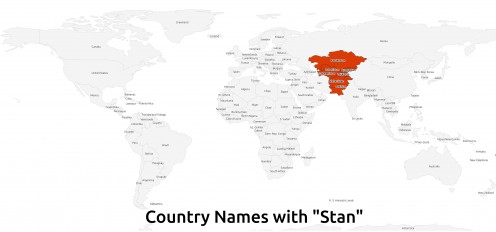
The Truth about the "-stans"
This false image, like many other things in the media cannot be further removed from the truth. For one thing, the suffix "-stan" found in the names of so many Central Asian countries is neither Arabic nor Islamic.
In fact, it is an extremely ancient Indo-European word (yes, note that the "European" part was not put into this word compound by accident) that was carried by ancient horsemen from what it now Ukraine and Russia thousands of years ago on a long migration to Europe, Persia (what is now Iran) and Northern India. It somehow became suffixed to the names of dozens of countries from Afghanistan to Uzbekistan.
The use of this word even spread from India to the islands of Southeast Asia, where it interestingly became the word "Istana" meaning "royal palace", which in Malaysia has almost sacred connotations. In Malaysia, Brunei and Indonesia, istanas of various sizes dot the landscape, all of them the home of either a reigning or former head of state.
What on Earth happened, you might ask and how did all this come to be?
Evolution of the word "-stan"
When the ancient Indo-Europeans rode out of the steppes of the Ukraine, they spoke an old, old language called, what else, Proto-Indo-European. They had a very common word that they used everyday: *steh or *sta or something similar (no one really knows what Proto-Indo-European sounded like but we do know that it would later evolve into most of the languages of Europe, like English, Dutch, German, French, Spanish, Italian, Greek, Russian as well as the languages of Iran and North India like Farsi, Hindi, Urdu, Punjabi etc. Linguists are thus able recreate how it hypothetically sounded like, by studying its daughter languages).
What we do know is that this *steh or *sta word probably meant something like "to stand", "to step", "to position oneself" and when it was used as a noun (in other words when it was used to refer to a thing as opposed to an action) it probably meant "place" or "location".
The European Descendants
The Proto-Indo-European word *steh or *stā-) "to stand" would slowly evolve over the millennia into the English word to stand, the Latin stāre, and Ancient Greek histamai (ἵσταμαι), all meaning "to stand" as well as the Russian стан (stan), meaning settlement.
In German, it would evolve into stehen ("to stand"), Stand ("place, location"), and Stadt meaning "place" or "city". In fact, the old English word "stead" as in "steadfast", "instead" and "steady" (all having to do with being somewhere or holding a certain position or location) come from this word as well. The word "stand" is of course the English equivalent.
In Latin the descendant is stare meaning "to stand" and would soon evolve into the copula verbs of modern Italian stare and Spanish estar, words used to describe conditions and states.
The Persian Descendants
It was the Indo-Europeans who journeyed to Persia (what is now Iran) who employed this word the most. The word became a suffix meaning "place of" or "land of" or "country".
With the rise of Persian language and culture during the Middle Ages (yes, during the Middle Ages, Persian was the language of commerce and culture in a large part of the Islamic world stretching from the Balkans to India, while Arabic was relegated to prayer and religious writing), the suffix "-stan" began to be used as a common suffix in the names of many countries and regions. From Kazakhstan (the Land of the Kazakhs) to Hindustan (the Land of the Hindus), from the regions of Waziristan in along the modern Afghanistan and Pakistan border to the North Caucasian region of Daghestan, next to Russia, the influence of Persian language was unmistakable.
In Persian and Urdu, a related language derived from Sanskrit but which was highly influenced by Persian during the rule of the Moghuls, "-stan" is a common, everyday suffix referring to places. It can be found in the words bimaristan (hospital) literally "place of the sick" registan "place of sand, desert", golestan "place of flowers, garden", etc. Even names of countries in Persian that do not normally take this suffix in their native languages do; Arabestan (Arabia) and Serbestan (Serbia).
The suffix "-stan" does not occur in Arabic and in the Middle East the employment of this suffix is recognised as Persian or Turkish usage.
Registan Desert
The Indian Descendants
In Persia and India, the invading branch of Proto-Indo-European broke into two branches, one gradually evolving into modern Persian and the other one becoming Sanskrit, the religious and cultural language of India.
In Sanskrit, the Proto-Indo-European words *steh and *sta evolved into sthana स्थान meaning "standing" and then coming to mean like "place" or "location". The unrelated Tamil language of South India borrowed this word from Sanskrit and it is now commonly found in the word Devasthanam or "Place of God", a common element in the names of Hindu Temples in Tamil Nadu.
Arulmigu Rajamariamman Devasthanam Temple
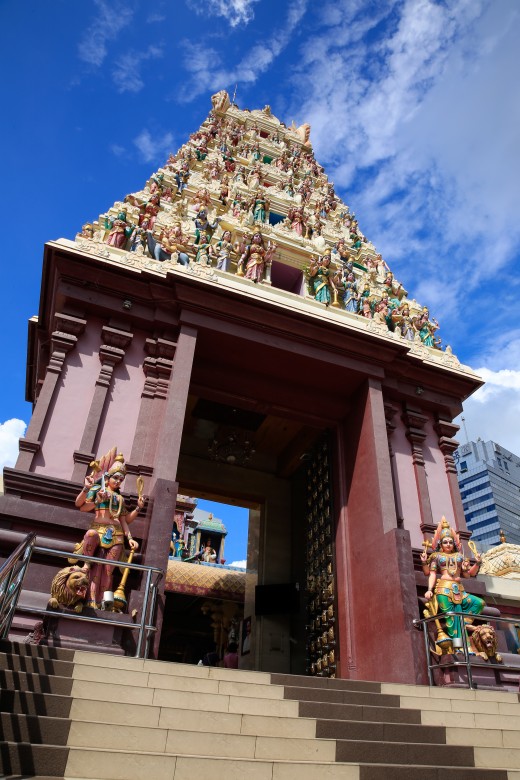
Southeast Asia and Beyond
The ancient people of what is now Malaysia and Indonesia practised indigenous forms of animism before the arrival of Hinduism and Buddhism brought by traders from India. These traders brought their Hindu cultural traditions (traces of which are still noticeable in Malay Muslim culture to this very day) and Sanskrit religious language to the region.
Malays borrowed the common Sanskrit sthana (the descendant of *steh / *sta in India, simply referring to a "place") to refer to a very special place, the king's residence. Now pronounced istana, this word coming to refer to the residence of the ruler of a Malay Hindu or Buddhist kingdom.
When Islam came to Southeast Asia, again brought by traders (some from India and others from the Middle East), the influence of Hinduism and the Sanskrit language were so strongly entrenched in Malay culture that the word istana was retained in favour of the Arabic qasr. Despite some Malay kings styling themselves sultan instead of the Hindu raja the palace was still the Istana, the very Sanskrit word brought centuries prior by Hindu traders.
Istana Negara, Malaysia
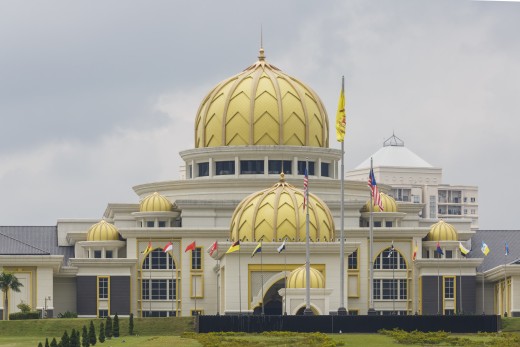
An ancient word with worldwide connections
The humble word *steh or *sta, coming from a language long extinct has descendants spread halfway across the world.
From the Malay Istana, to the Hindu Devasthanam, to the Persian "-stan", to the English words "stand" and "stead", to the German stehen and Stadt to the Latin stare with its modern descends, the Spanish estar and the Italian stare.
No culture is an island, no language is isolated, apart and separate from all others.
We are all connected.




